Poodle 101: The Essential Guide
| Origin | Germany |
| Size | Toy, Miniature, or Standard |
| Height | 9-11 inches (Toy)11-15 inches (Miniature)15 inches & up (Standard) |
| Weight | 6-9 pounds (Toy)15-17 pounds (Miniature)40-70 pounds (Standard) |
| Life Expectancy | 10 – 18 years |
| Breed Group | Non-Sporting Group |
| Affection Level | ⭐⭐⭐ |
| Friendliness | ⭐⭐⭐ |
| Activity Level | ⭐⭐⭐ |
| Barking/Howling Level | ⭐ |
| Pet Friendly | ⭐⭐⭐ |
| Kid-Friendly | ⭐⭐⭐ |
| Shedding | ⭐ |
| Easy to Groom | ⭐ |
| Easy to Train | ⭐⭐⭐ |
Table of Contents
Origin
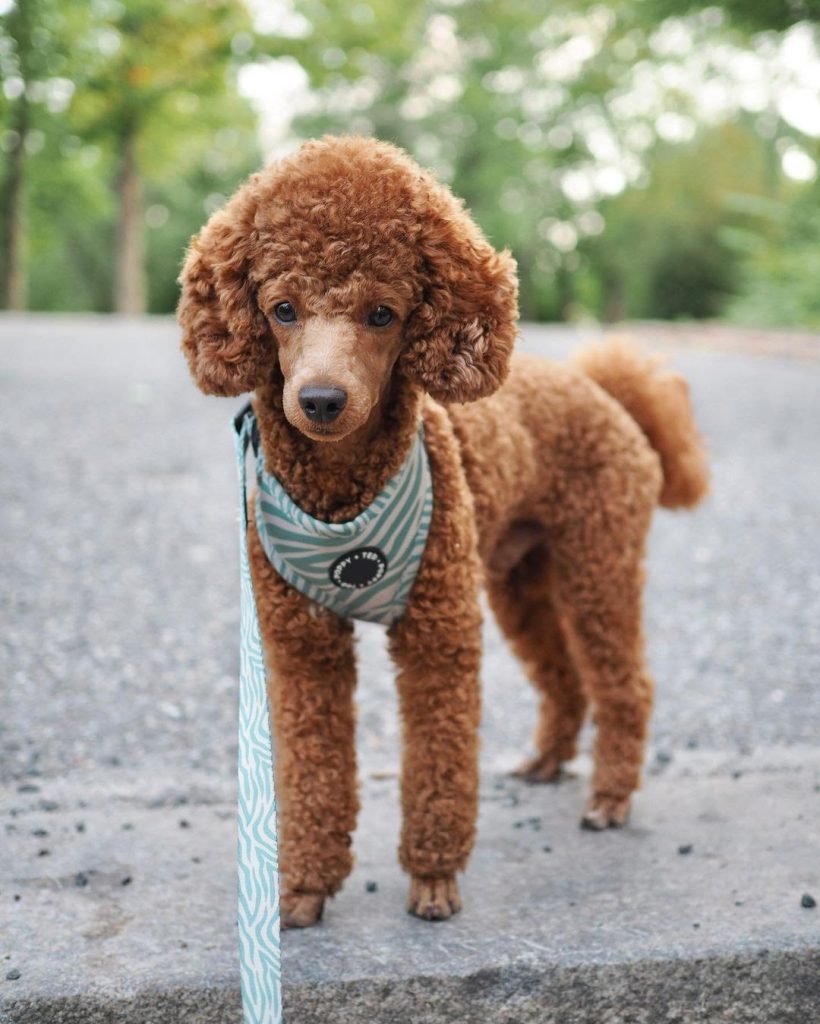

France hailed the Poodle breed as its very own national dog! However, several historians mutually agree that this dog’s place of origin is no other than Germany. Considered to be one of the oldest breeds to ever exist, this water retriever brought several theories on how it came about.
Firstly, many believe that the Poodle has been a result of crossbreeding several other European dog breeds which might have included French, German, Spanish, and Russian water dogs. Other historians also speculated that the Poodle and the North African Barbet are largely related to each other due to their striking looks and similarities.
Some others argue, however, that the Poodle may have come from Asian herding dogs which accompanied German tribes and eventually became a German water dog.
Lastly, another assumption is that the Poodle came from Asian unforested grasslands through the North African Berbers, linking us back to the possibility that the Barbet dog is indeed a Poodle’s ancestor.
Appearance
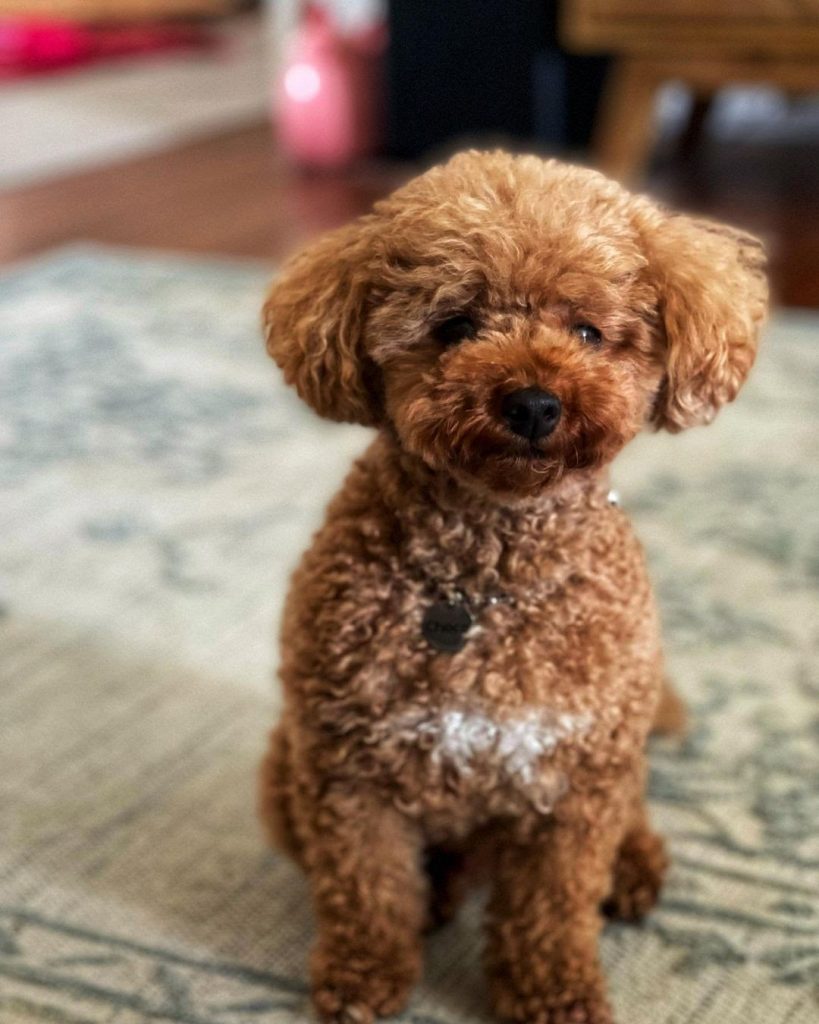

Poodles come in three distinct sizes: Toy, Miniature, and Standard. Although they vary in body mass, all of them are purebred dogs. Below is a table that shows their respective heights and weights:
| Size | Height | Weight |
| Toy Poodle | 9 to 11 inches | 6 to 9 pounds |
| Miniature Poodle | 11 to 15 inches | 15 to 17 pounds |
| Standard Poodle | 15 inches & up | 40 to 70 pounds |
As it is with other dog breeds, the Poodle’s measurements are generally factored by gender.
All the Poodles, regardless of their sizes, share the same square outline with long muzzles and an elegant neck. Their backs are straight and their tails are docked but not too short so they could still exhibit a merry attitude.
Just by first glance, one among many others you would instantly notice is the legs which may be slender, but are sturdy enough to show power in wild waterfowl hunting. Their feet are webbed as well, making them great swimmers. Their ears are quite long and droopy, contributing to a classier appearance.
All Poodles can be great contenders in dog fashion show contests. If you’re thinking of joining your Poodle in shows, the pooch has to have a specific clip or cut. Usually, the coat texture has to be tight and curly. Colors come in a variety too! The common ones we can see are:
- Silver
- Black
- White
- Apricot
- Chocolate
Temperament
Dignified, intelligent, and loyal are three words that are liberally given to the Poodle breed. His intimidating appearance and classy looks don’t often reflect standoffish behavior. Fortunately, the history of Poodles working with men in their hunting pursuit made them excellent companions until now.
But what makes the Poodle dog a great dog with an even personality? Let’s check out the main areas for his temperament.
Affection
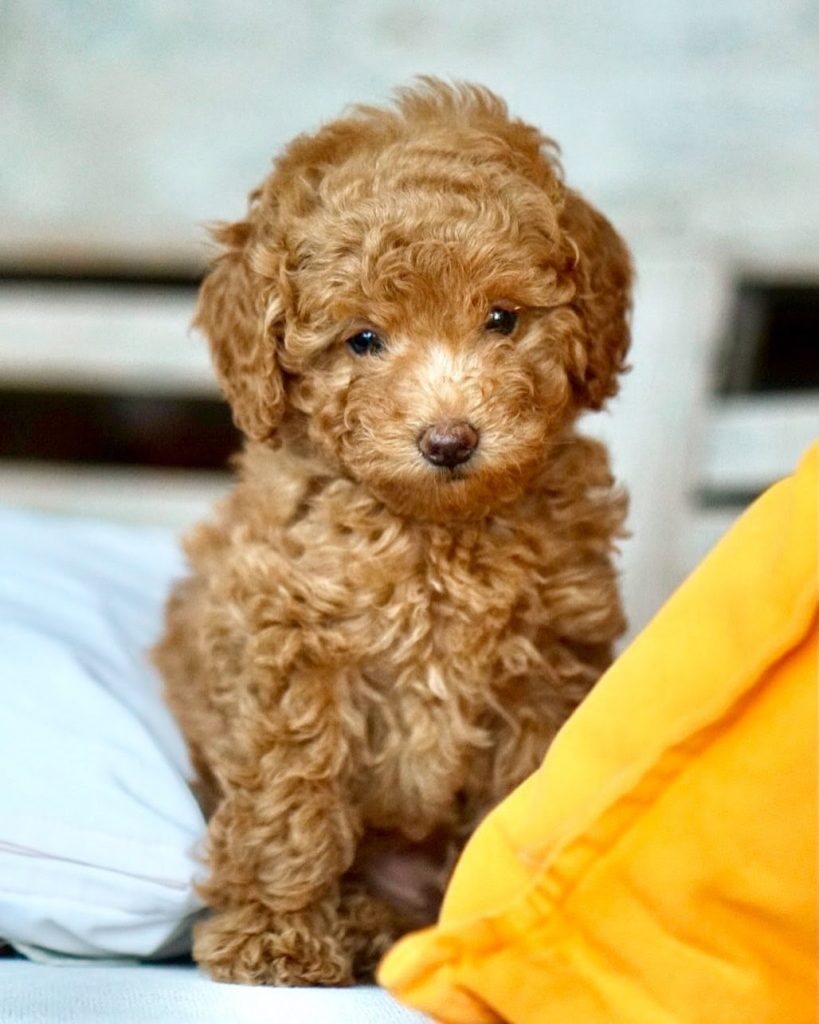

When it comes to affection, the Poodles are way beyond the charts. Many Poodle owners have observed how these dogs are naturally in tune with their emotions. Expect that once you own a Poodle, whatever feelings you show, your dog will exhibit the same state.
This makes it a very endearing gesture perceived by families who own Poodles as pets. Not only are these dogs super affectionate, but they’re extremely loyal as well.
Poodles show their love in several ways. At times, you won’t need a keen eye to notice these:
- Jumps for attention
- Follows you anywhere
- Gets pushed by their noses
- Tail wagging
- Shows puppy eyes
- Brings you toys
- Cuddles you
- Licks you
Friendliness
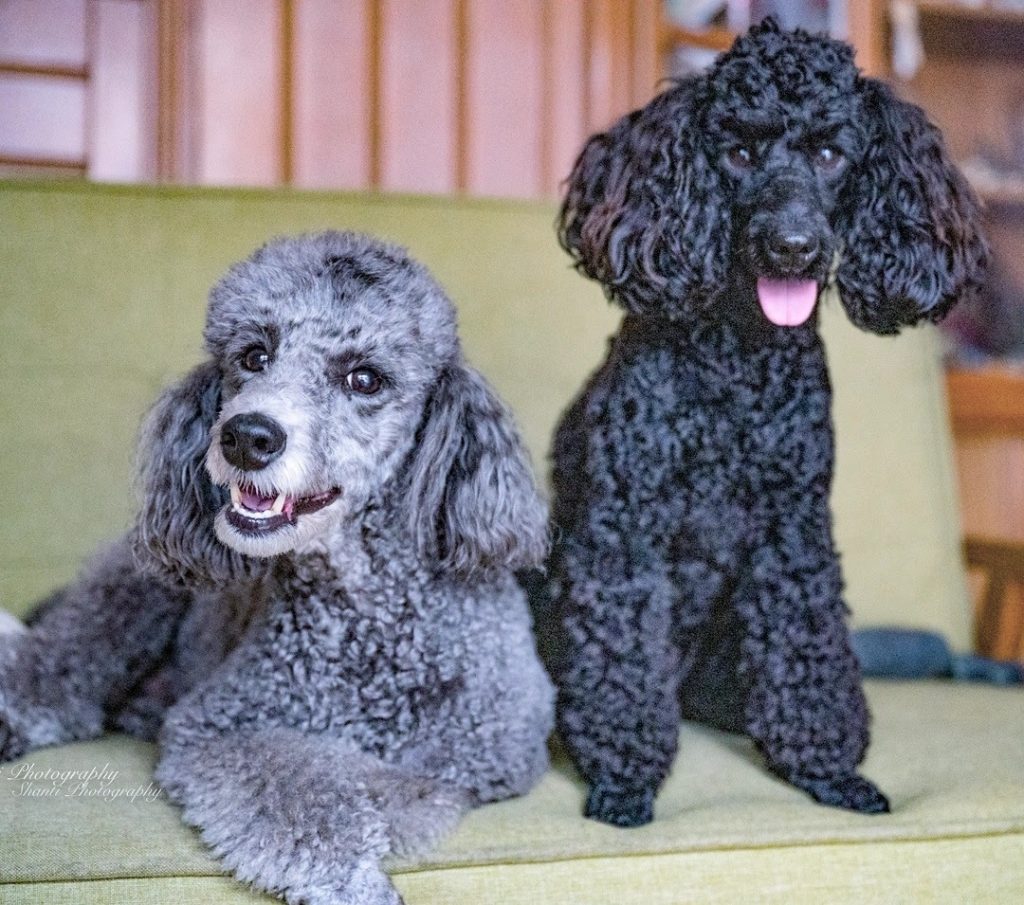

No one else loves being the center of attention than the Poodle breed. His penchant for socialization makes him approachable to almost anyone.
If you have kids, Poodles would love to play with them. As much as they can, these dogs will be in their gentlest mode when dealing with their tiny humans. They are people-pleasing pooches who love to draw and see smiles on their owner’s faces.
Remember that as long as you provide these dignified canines a warm and loving environment, you’ll see cheerful dogs with healthy behaviors and attitudes.
If they are raised well, they won’t be typically aggressive toward strangers which makes it less concerning if you constantly have guests at home. However, Poodles will be reserved at all times until they trust that unfamiliar faces at their territories are non-threatening.
As for other dogs, as long as you properly introduce the canines to each other, the chances of seeing a conflict will be very low. Ensure that the dogs you mingle your Poodle with are complementary to the behavior of your pet to prevent causing anxiety or stress.
Poodles usually get along with dog breeds such as:
- Other Poodles
- Schnauzer
- Pekingese
- Pug
- Yorkshire Terrier
- Siberian Husky
- Shih Tzu
- Bulldog
- Beagle
- Airedale Terrier
Activity Level
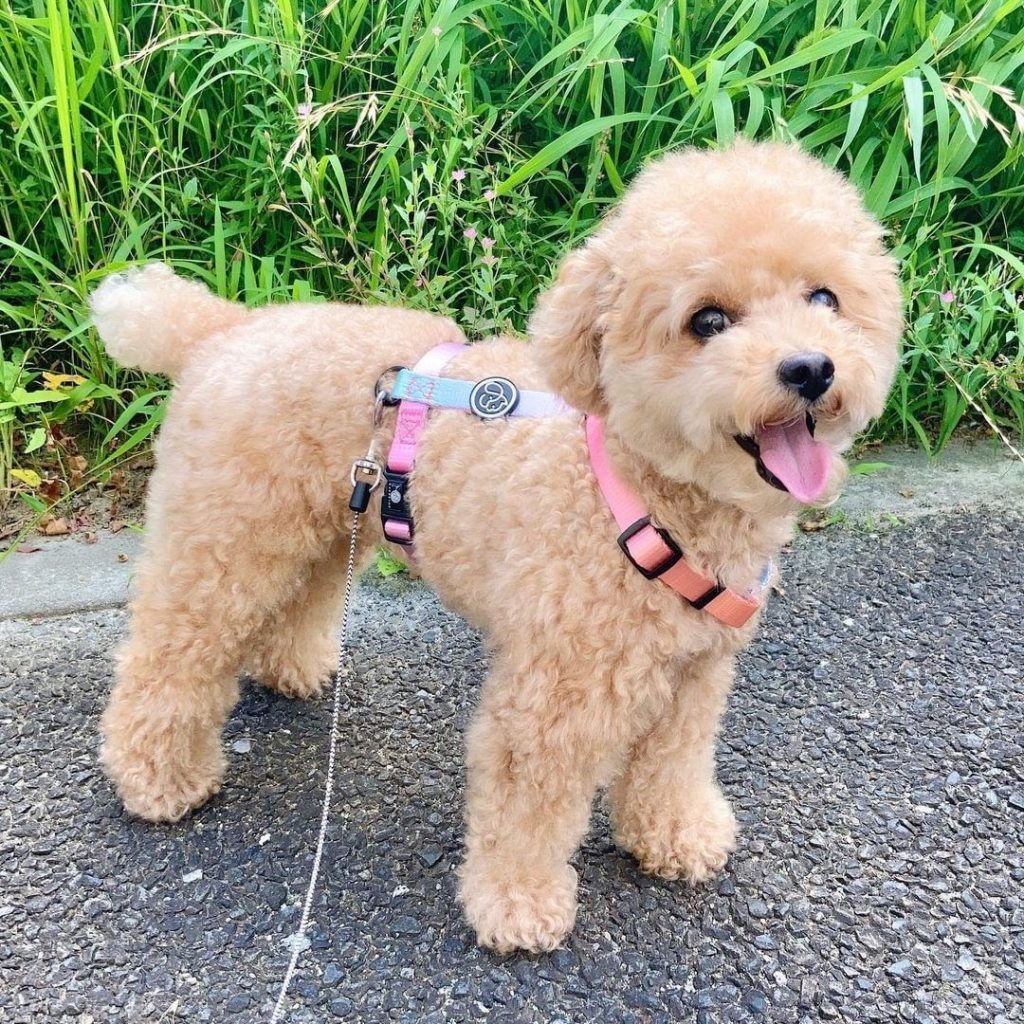

Poodles have moderate to high energy levels. Since every dog is different, you have to check how much energy your dog has so you avoid over-exhausting him with games and activities.
If you’re wondering as to what would be the greatest pastime for this dog, it would be swimming. Poodles are bred to be working dogs whose fields are in the water, so enhancing their built-in talent for swimming is a great method to boost their physique as well as their mental health.
You can try other fun activities as well such as throwing a ball against the wall and command your pooch to catch it on the rebound. Aside from physically stimulating him, you can also give him mental games to play such as giving him errands to do in the house.
Take note that keeping your Poodle preoccupied can positively impact his personality. A bored Poodle can show destructive habits which will eventually be too hard to break if not discouraged.
Care
Don’t let the Poodle’s looks fool you in terms of grooming! Although they sport various clips, taking care of this dog breed is not a tedious task at all. Just as you would with any other dog breed, by simply providing all the basics, the Poodle is guaranteed a great life with you.
Grooming
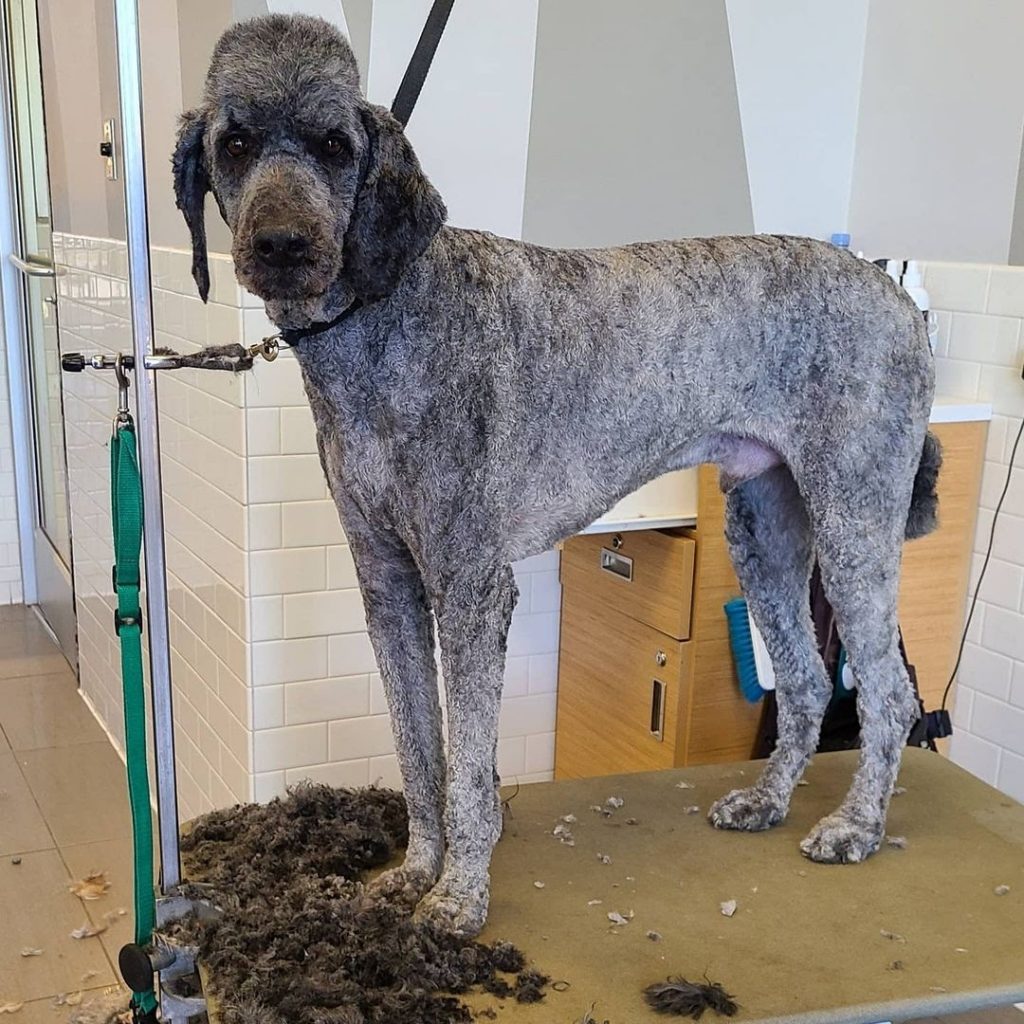

Before you get a Poodle, you have to ask yourself whether this dog is going to join dog shows in the future or simply just remain a house pet. By doing so, you would already be able to foresee the grooming expenses.
Reasonably, show quality Poodles would need professional groomers more than the pet quality dog whose coat can simply be managed at home by the owner. Nevertheless, even if you don’t opt for elaborative grooming cuts for your Pooch, the coat is still considered a high-maintenance one.
The dog’s naturally curly hair would need frequent brushing which you can do 2 to 3 times a week or daily. Doing this will prevent future matting which can be a painful experience for any dog. Also, don’t forget to regularly check on the ears, teeth, and nails for any signs of ingrown nails or infections.
If you find this an overwhelming task yet the Poodle breed is your top choice, going for the Toy Poodle would be the best option for you due to its smaller size.
Food and Diet
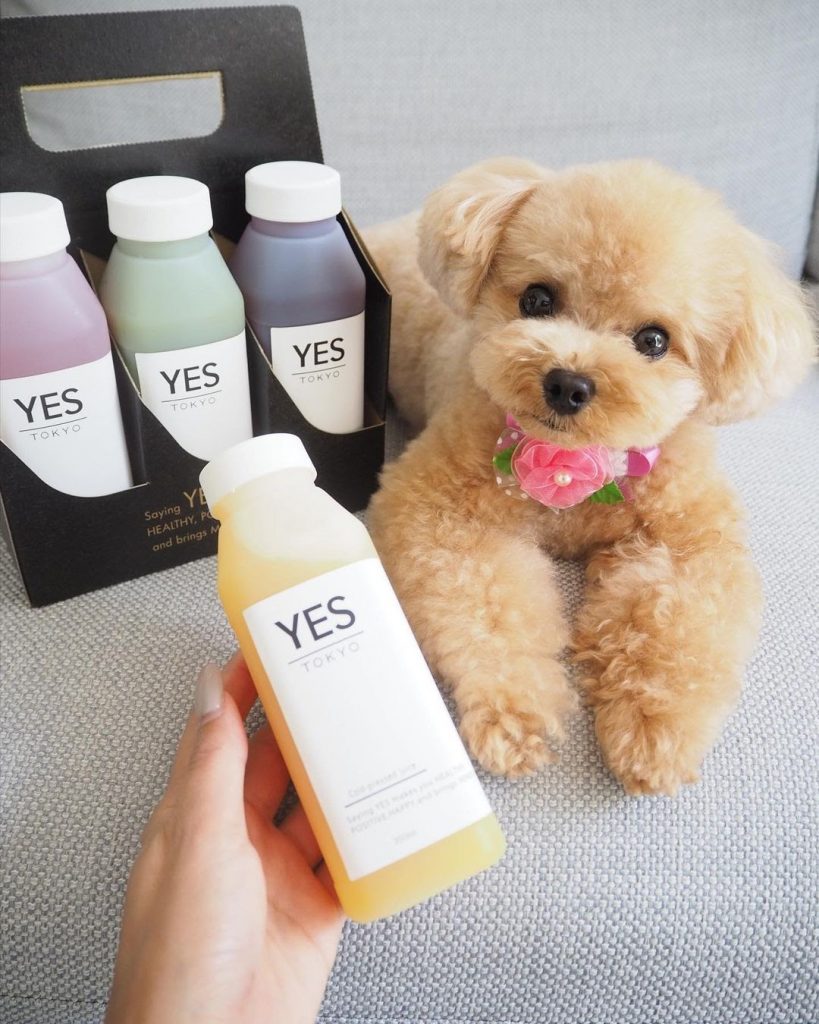

Some Poodles can be picky eaters. This breed is also the least food-motivated canine among all others. They will eat only when they’re hungry and nothing more than that. Despite this fact, Poodles can still be prone to obesity, therefore, feeding them the right amount is necessary.
| Size | Average Feeding |
| Toy Poodle | 1/2 cup |
| Miniature Poodle | 1 cup |
| Standard Poodle | 1 & 1/2 cups |
In feeding, go for high-quality dog food that doesn’t contain MSG, artificial coloring, chemical preservatives, generic meats and oils, fillers, and by-products. Moreover, the amount of food should vary on activity level, age, weight, and health status of your Poodle.
Exercise
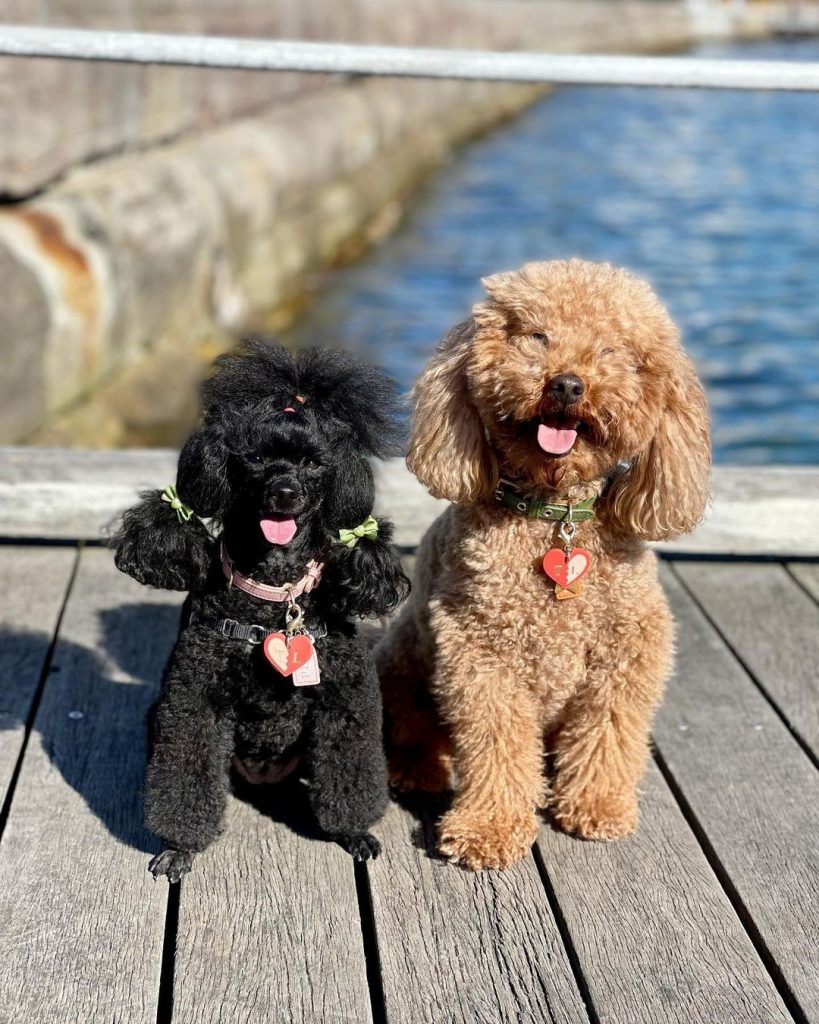

As recommended by The Kennel Club (UK), the Poodle generally needs an hour of daily exercise. This dog needs to burn off some fats to maintain a healthy weight as well as keep his bones and muscles stronger.
Of course, you have to base the length of the drill according to the dog’s age. For Poodle puppies, 30 minutes will suffice. You can divide the time into shorter schedules. In the first half, you and your dog can enjoy a game of fetch and for the remaining half, a hearty walk in the park.
Training
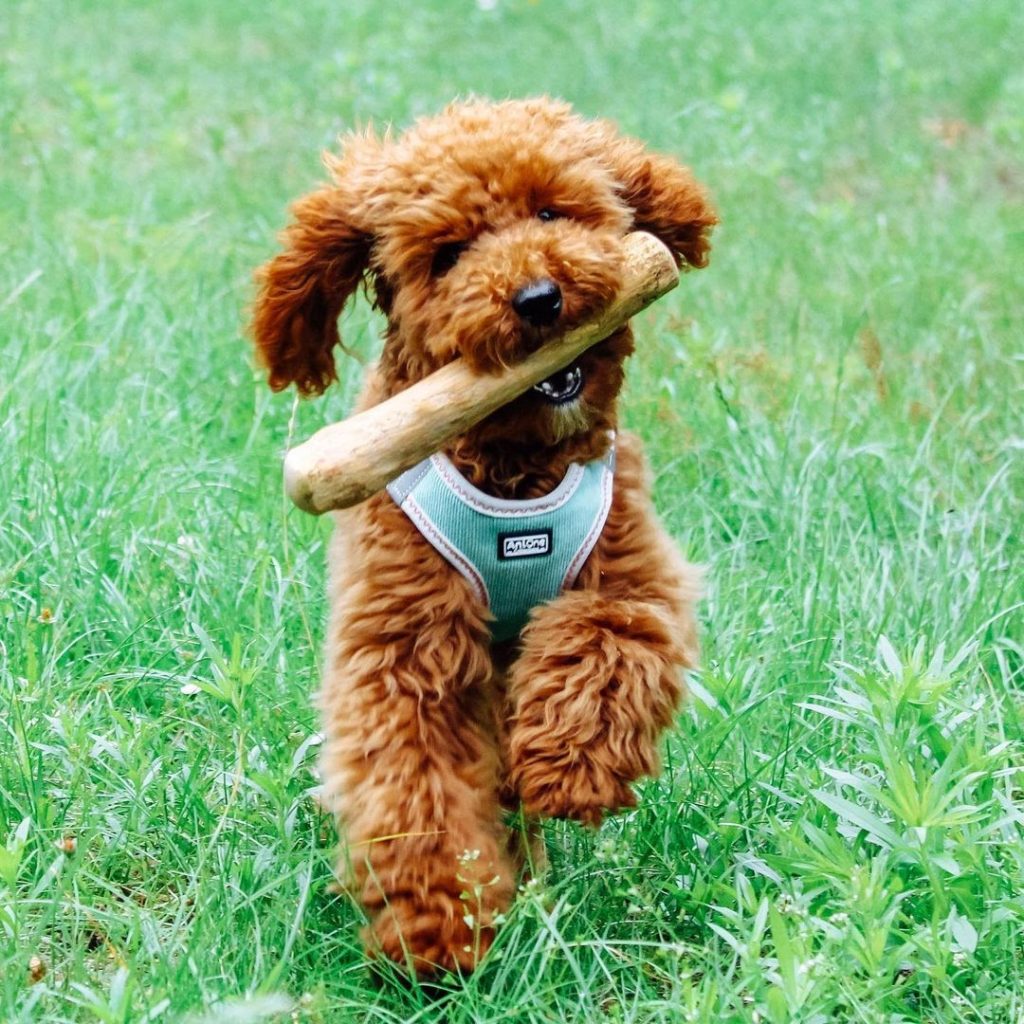

How Poodles present themselves doesn’t always mean that they are spoiled animals with fancy haircuts because they are intelligent beyond measure! Pair their smart brains with their eager-to-please attitude and you’ll see new tricks learned swiftly.
In training, keep your Poodle calm and focused before embarking on drills. Doing so will increase his training success.
Some pieces of training every Poodle should learn are:
- Socialization
- Obedience
- Crate training
- New tricks
- Basic commands
Health Problems
Poodles are sturdy dog breeds with a few health issues you have to be aware of. Some of these include:
- Addison’s disease
- Thyroid issues
- Progressive retinal atrophy
- Eyelid problems
- Skin problems
Thanks to the ethical breeding of calm and intelligent Poodles, these dogs can still enjoy a healthy long life.
Pros and cons of having a Poodle
Pros
- He is a social breed
- Intelligent
- Active
- Comes in different sizes
- Stylish
- Has a long lifespan
- Considered hypoallergenic
Cons
- He could be high-maintenance
- Needs lots of attention
- Not great as a guard dog
- Toy Poodles and young kids are a mismatch
- Very sensitive
Do Kennel Clubs Recognize the Poodle?
Yes, they do! The prestigious American Kennel Club (AKC) and the Kennel Club recognize all three varieties of Poodle. The current standing in breed popularity regarding this dog breed is at 7th out of 200 which is no surprise since these dogs are popularly associated with fashion.
The AKC acknowledged the Poodle as a breed in the year 1887.
Cost


Poodle puppies can be quite costly to purchase. Depending on what quality you go for, the price can be largely affected. If you are aiming to own a breed of this kind, here’s a breakdown of how much each variety of Poodle may cost you:
| Size | Price |
| Toy | $1,000-$2,000 |
| Miniature | $1,000-$2200 |
| Standard | $700-$5000 |
Where to Adopt or Buy a Poodle
Poodles are great buddies to have hence why thousands of families in America chose to have this dog. If you are fascinated by his unique qualities and calm personality, the next step is to bring home a Poodle pup. Here’s a list of places where you can get him:
BUY
ADOPT
Poodles are charming dogs who love peaceful homes and sweet owners. Packed with desirable other qualities such as being active, sporty, beautiful, and graceful, anyone who gets to see this dog will surely fall in love with the breed.
Also, his coat which might need lots of attention and details can be a means to a longer bonding moment with you. The perks of getting this dog won’t fit the paper and you’d only get to realize how long all the positives are once you already bring a Poodle puppy home!
